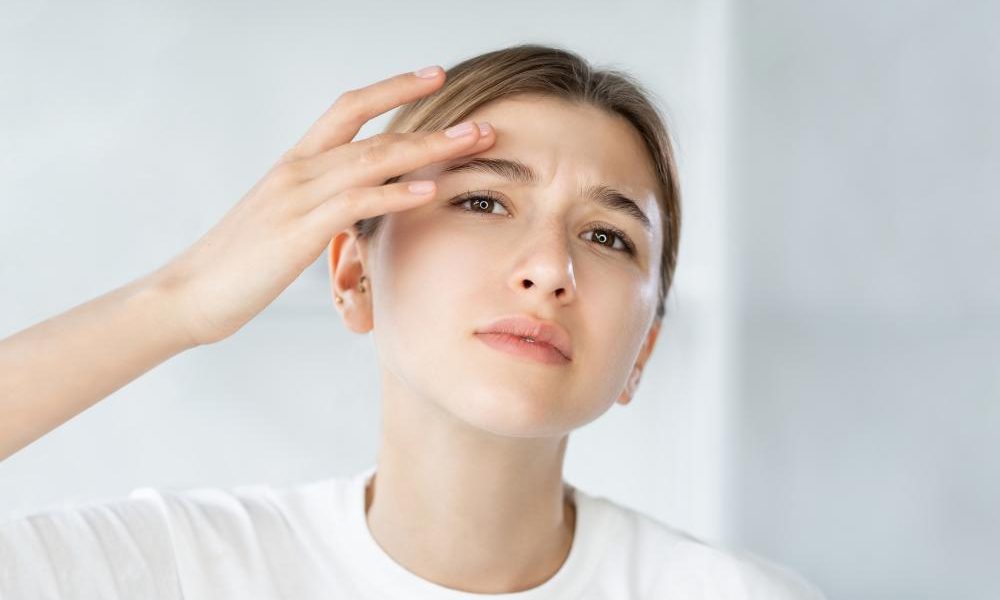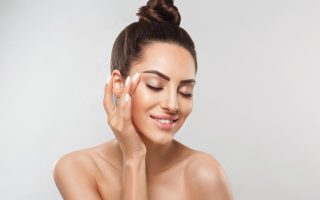You wake up one morning and notice that your skin is shinier than usual, and not in a good way. Your once balanced complexion is now plagued with excess oil. What could have caused this sudden change? Here’s an in-depth guide to help you understand why your skin has become oily and what you can do to manage it.
Understanding the Causes of Sudden Oiliness
Several factors can contribute to a sudden increase in skin oiliness. Let’s dive into some of the most common causes.
Hormonal Fluctuations
Hormonal changes are a major cause of sudden oiliness. Dr. Julie Russak, a board-certified dermatologist, explains, “Hormonal fluctuations can trigger increased sebum production, leading to oily skin. Stress, certain medications, and even the time of the month can all play a role” (Source: Russak Dermatology). Hormones, especially androgens, can stimulate the sebaceous glands, causing them to produce more oil.
Personal Experience: Hormones and Skin
I remember during my teenage years, my skin would become incredibly oily around exams. The stress and hormonal changes were a perfect storm for excess oil production. Understanding this connection helped me take better care of my skin during stressful times.
Over-Cleansing
While it might seem counterintuitive, over-cleansing your skin can actually make it oilier. Dr. Corey L. Hartman, a board-certified dermatologist, notes, “Over-cleansing can actually worsen oiliness. Stripping the skin of its natural oils can send sebaceous glands into overdrive, producing even more oil” (Source: Skin Wellness Dermatology). When you remove too much oil from your skin, it responds by producing even more to compensate.
Insight: Gentle Cleansing
Using a gentle cleanser twice a day is sufficient for most skin types. Avoid harsh soaps and exfoliants that can strip your skin of its natural oils.
Dietary Influences
What you eat can also affect your skin’s oil production. Dr. Elizabeth Tanzi, board-certified dermatologist and founder of Capital Laser & Skin Care, explains, “Diet can influence skin oiliness. High-glycemic foods and dairy have been linked to increased sebum production. Focus on whole, unprocessed foods for healthier skin” (Source: Capital Laser & Skin Care). Foods that cause a spike in blood sugar can lead to more oil production.
Study Insight: Diet and Skin
A study published in the American Journal of Clinical Nutrition suggests that a low-glycemic-load diet may help reduce sebum production and improve skin health.
Changes in Skincare Products
Switching to new skincare products can also cause your skin to become oily. Renee Rouleau, a celebrity esthetician, advises, “If your skin suddenly becomes oily, consider if you’ve recently changed your skincare products. Some ingredients, like heavy oils or comedogenic ingredients, can clog pores and lead to excess oil” (Source: Renee Rouleau Skincare).
Personal Anecdote: Product Changes
I once switched to a new moisturizer that was supposed to be “ultra-hydrating.” Within days, my skin was an oily mess. After reading the label, I realized it contained heavy oils that were too rich for my skin type.
Environmental Factors
Humidity can significantly impact your skin’s oiliness. Shani Darden, a celebrity esthetician, states, “Humidity can also contribute to oily skin. In humid climates, the skin tends to produce more oil. Look for lightweight, oil-free moisturizers and blotting papers to manage excess shine” (Source: Shani Darden Skin Care).
Practical Tip: Managing Humidity
In humid weather, use a mattifying primer and carry blotting papers to control shine throughout the day.
Stress
Stress is another common culprit behind oily skin. Dr. Howard Murad, dermatologist and founder of Murad Skincare, explains, “Stress can trigger the release of cortisol, which can stimulate oil production. Incorporate stress-management techniques like exercise, meditation, or yoga into your routine to help balance your skin” (Source: Murad Skincare).
Personal Insight: Stress Management
During my first job, I noticed my skin becoming oilier whenever I had tight deadlines. Incorporating yoga and meditation into my routine helped me manage stress better and improved my skin’s condition.
Medications
Certain medications can also lead to increased oil production. Birth control pills, hormone replacement therapy, and some acne treatments can alter hormone levels, affecting your skin’s oiliness.
Professional Advice
If you suspect your medication is causing oily skin, consult your healthcare provider. They may adjust your dosage or suggest an alternative treatment.
Solutions for Managing Oily Skin
Now that we’ve explored the causes, let’s look at some effective solutions to manage oily skin.
Use the Right Cleanser
Opt for a gentle, foaming cleanser that removes excess oil without stripping your skin. Look for ingredients like salicylic acid, which can help control oil production.
Incorporate Lightweight Moisturizers
Choose oil-free, non-comedogenic moisturizers. These products hydrate your skin without clogging pores. Lightweight gels or lotions are ideal.
Regular Exfoliation
Exfoliate your skin regularly to remove dead skin cells that can trap oil and cause breakouts. Use a gentle exfoliant with ingredients like glycolic acid or lactic acid.
Clay Masks
Clay masks can help absorb excess oil and impurities from your skin. Use them once or twice a week to keep your skin balanced.
Blotting Papers
Carry blotting papers with you to manage shine throughout the day. They’re a quick and convenient way to remove excess oil without disturbing your makeup.
Balanced Diet
Focus on eating a balanced diet rich in whole foods. Avoid high-glycemic foods and dairy, which can increase oil production.
Stress Management
Incorporate stress-relief techniques into your daily routine. Exercise, meditation, and adequate sleep can help regulate hormone levels and reduce oil production.
Conclusion
Understanding why your skin has suddenly become oily is the first step to managing it effectively. Whether it’s due to hormonal changes, over-cleansing, diet, or stress, there are solutions to help you regain control over your skin. By incorporating the right skincare products and lifestyle changes, you can achieve a balanced, healthy complexion.
Remember, every skin type is unique. What works for one person may not work for another. It’s essential to listen to your skin and make adjustments based on its needs. If you’re struggling with persistent oiliness, consider consulting a dermatologist for personalized advice.
By following these expert tips and solutions, you can manage sudden oiliness and keep your skin looking its best. Don’t let oily skin get you down – with the right approach, you can maintain a clear, radiant complexion.
Expert Quotes Summary
- Dr. Julie Russak: Hormonal fluctuations can lead to increased oil production. (Source: Russak Dermatology)
- Dr. Corey L. Hartman: Over-cleansing can worsen oiliness by stimulating sebaceous glands. (Source: Skin Wellness Dermatology)
- Dr. Elizabeth Tanzi: Diet influences skin oiliness; focus on whole, unprocessed foods. (Source: Capital Laser & Skin Care)
- Renee Rouleau: Changes in skincare products can cause oily skin; avoid heavy oils. (Source: Renee Rouleau Skincare)
- Shani Darden: Humidity increases oil production; use lightweight, oil-free products. (Source: Shani Darden Skin Care)
- Dr. Howard Murad: Stress releases cortisol, stimulating oil production. Practice stress management. (Source: Murad Skincare)
Studies
- The Role of Diet in Acne: Suggests a low-glycemic-load diet to reduce sebum production. (Source: American Journal of Clinical Nutrition)
- The Influence of Hormones on Sebum Production: Highlights how androgens stimulate sebaceous glands. (Source: Journal of Investigative Dermatology)
By understanding the causes and implementing the solutions provided, you can effectively manage sudden oiliness and enjoy healthier, more balanced skin.




